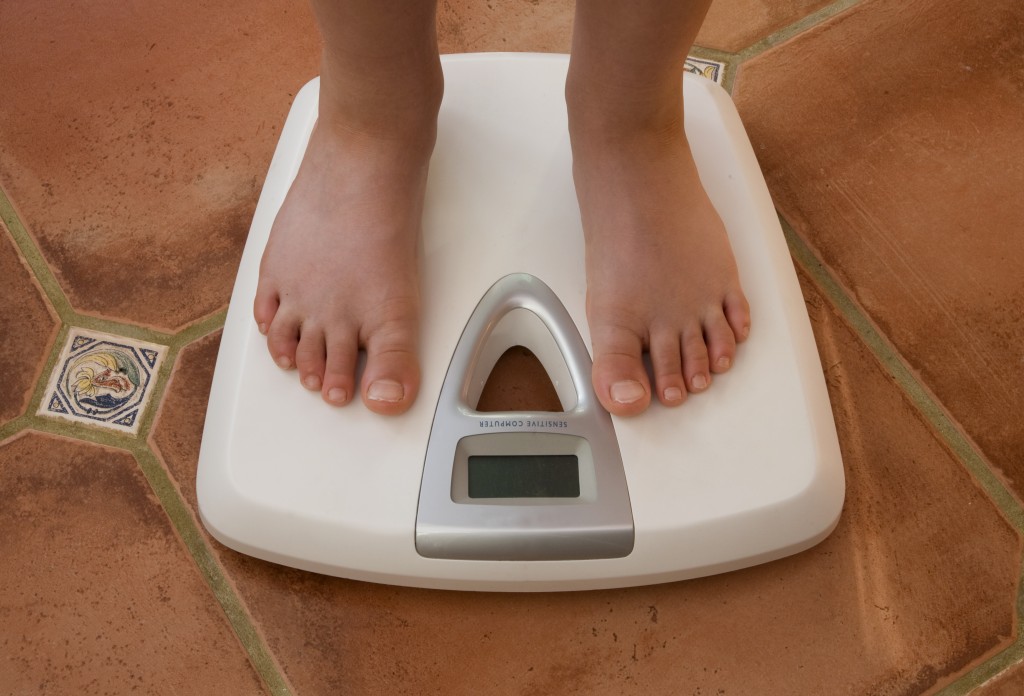
Many people begin the New Year with a commitment to better health and weight loss. At Seattle Children’s Research Institute, we’re doing the same by launching an obesity treatment study using long-term interventions that provide children and parents with focused guidance and education to help them reach and sustain weight loss goals.
The study, known as the SHIFT study (Success in Health: Impacting Families Together) takes place over a five-month period in which children ages 7-11 and their parents meet weekly for intensive sessions at regional clinics.
“This study is a great opportunity for one-on-one attention and group support for families who are starting this New Year thinking about weight loss and healthy habits,” said Dr. Brian Saelens, Principal Investigator and director of the study. “Past results using this intensive method showed promise, and we are excited to expand this research with NIH support.”
Solving the riddle of how to treat obesity
For more than 40 years, researchers have studied medical interventions to target obesity but have not made enough progress to stop alarming obesity rates in the United States. According to the Centers for Disease Control and Prevention, childhood obesity has more than doubled in children and quadrupled in adolescents in the past 30 years. Pediatric obesity increases a child’s risk of harmful health effects such as high blood pressure and cholesterol, type 2 diabetes and respiratory problems.
The NIH funds expand Saelens’ previous obesity research to include more participants in clinics located in Seattle, Federal Way, Everett and Bellevue. The first phase of the study examined how long-term obesity intervention delivered by a professional compared with long-term intervention delivered by peers, who are parents that received the treatment themselves.
In this phase of the study, a family will meet individually with an interventionist in weekly sessions to discuss goals, and then parents and children go to separate group sessions. The sessions are focused on subjects including healthy eating, how to support children in behavior changes, how to improve the home environment for physical activity and healthy eating, and how to build confidence and incorporate more physical activity into family life. The goal is to have 300 families participate in the SHIFT study. The treatment sessions occur over five months and families can initiate participation over the next four years.

“Our preliminary results show that intense intervention and education is an effective weight loss treatment, but that level of sustained attention from a medical provider comes at a high cost that is rarely covered by insurance and can be prohibitively expensive for families,” Saelens said. “One of the exciting findings in our earlier study was that peer-to-peer interventions between families are as effective as professional interventions, perhaps even more effective, and they can be delivered at much lower costs. Also, parents who are peers may get additional benefits from delivering the intervention.”
Previous studies of peer-to-peer interventions have shown them to be effective for treating health issues including tobacco use and HIV prevention. Saelens and his group will assess the long-term effectiveness of the intervention by looking at impacts up to one year after the end of treatment.
NIH funding accelerates pediatric research
Saelens’ study begins as the NIH budget gets a $2 billion dollar boost thanks to a federal spending bill signed by President Barack Obama in December. This would be the first major budget increase for the NIH in 12 years.
“The President’s commitment to increasing NIH funds is hopeful news for pediatric researchers,” said Dr. Jim Hendricks, President of Seattle Children’s Research Institute. “History demonstrates that when Americans invest in research, we discover cures that save lives. About 20 percent of the American population is kids, but only five percent of the NIH budget goes to childhood research. This new wave of funding will accelerate our research to find cures and better treatments for pediatric diseases and conditions.”
The funds for the study came from the National Institute of Diabetes and Digestive and Kidney Diseases.
Resources
- Dr. Brian Saelens, Seattle Children’s
- Obesity Education and Resources, Seattle Children’s

